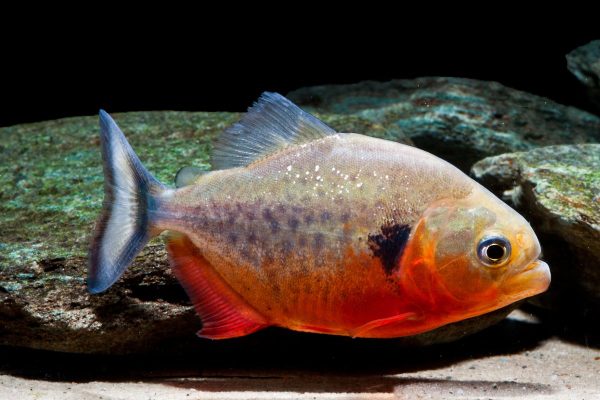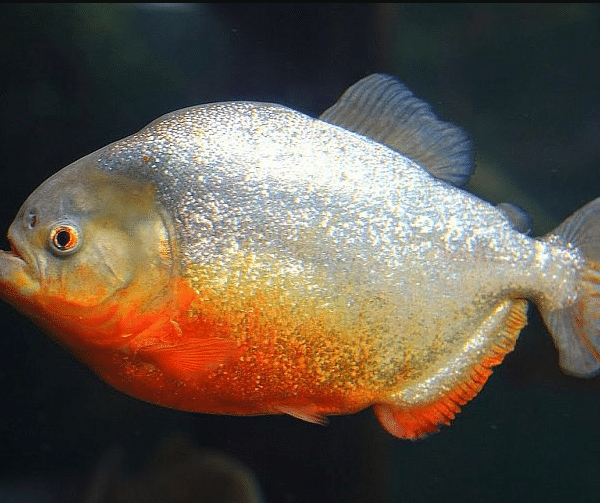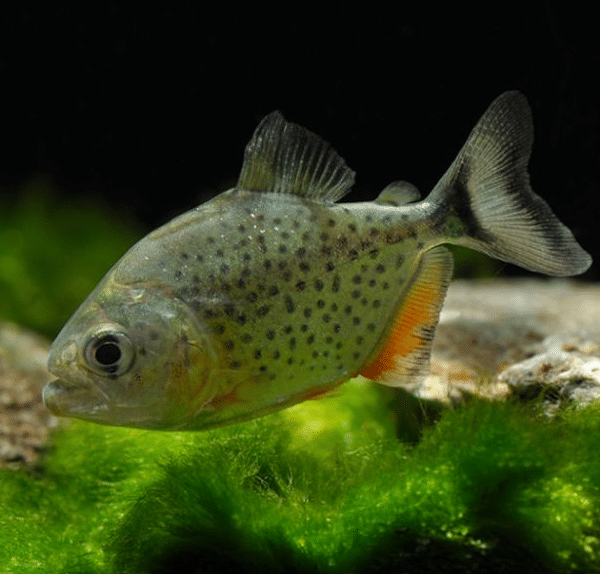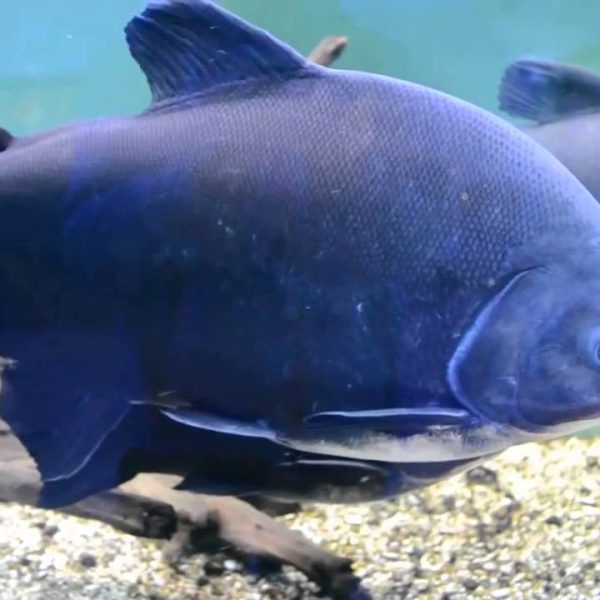Address
Γεωργίου Παπανδρέου 17Α Θεσσαλονίκη 54645
Opening hours
Monday - Friday: 9am - 7pm
Saturday: 9am - 2:30pm
Address
Γεωργίου Παπανδρέου 17Α Θεσσαλονίκη 54645
Opening hours
Monday - Friday: 9am - 7pm
Saturday: 9am - 2:30pm

50.00€
Available on backorder
| Scientific Name: Pyocentrus cariba (Humboldt 1821)Common Names: Cariba Piranha, Black Shoulder Piranha, Orinoco Piranha, Black Eared Piranha, Venuzuelan Red Belly Piranha. The natives indians call this species CaribeThe Caribe were an infamous, warlike native tribe, but no longer exists. This species is also called Capaburro by local cattle herdsmen, which means Donkey Castrator...Range: Rio Orinoco lowland basin and the Llanos region in Venezuela. Maximum Size: Body Characteristics: Distinctive/unique features: |
Aquarium:
Juvenile and sub-adult specimens of this species should be kept in a tank of at least 20 gallons (80 liters). Adults need at least 15, preferably more gallons per fish (depending on tank size: large tanks, 100+ gallons, can in theory hold more fish than smaller ones, due to the larger footprint). Because P. cariba is regarded by many as being more active and more aggressive and territorial than its close relative P. nattereri, more gallons per fish is recommended, especially for larger fish (10-12″+).
Compatible Species:
Pygocentrus nattereri, Pygocentrus piraya.
Diet:
This species accepts the same foods as most other piranha's: fish (fillets, frozen fish and live feeders *), shrimp, prawns, mussel, squid and other sea fruits, earth worms, meal worms and other insects, flakes, pellets, granules.
Mamalian meat/organs, small live mamals, reptiles, amphibians, poultry meat, dog- and catfood and even cheese are also often accepted, but should be fed very sporadically, if at all. Reason for this is that these food items are very rich in fat and protein, which makes it rather unhealthy sources of food. These food items at best only make up a tiny portion of this species' diet in the wild. This means that its digestive system is not designed to process these food items, and feeding these kinds of foods may also lead to digestive problems, obesity, decreased resistance against diseases and parasites, and possibly even fatal conditions.
* Live fish need to be quarantained first, so they are safe to feed (containing no disases or parasites). Goldfish, minnows and other members of the Cyprinid family (Carp-like fish) should be avoided, as these fish contain growth-inhibiting hormones (Thiaminase/Vitamin B1 inhibitors) that could negatively affect the fish's health and development.
Like the other Pygocentrus species, the Cariba Piranha catch living prey by active chase. They will charge a group of fish, snapping at anything they can get a hold of and will chase individual prey until caught. This may take some time, because although they are fast swimmers, they can only sustain high speeds for short bursts.
They also sometimes practice the ambush method, but often only get a fin or mouth full of scales rather than the whole fish.
Comments:
The Cariba has been said to be a very aggressive species in the wild. During the nesting season, groups of Pygocentrus cariba have been observed to congregate under nesting birds, patiently waiting for unfortunate chicks to fall into the water.
| Weight | 5 kg |
|---|---|
| Manufacturer | Amazonios |
Only logged in customers who have purchased this product may leave a review.



Reviews
There are no reviews yet